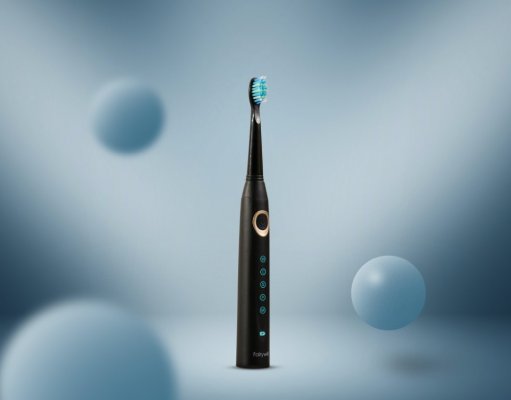Nowadays, manual toothbrushes are simply not the best for your dental hygiene anymore. They last only for three months at best, require manual effort to work, and are generally unreliable when it comes to cleaning performance. After all, not everyone brushes their teeth with the same intensity, accuracy, and speed needed for their teeth’s needs. Because of this, their dental hygiene is not guaranteed. Read our article that goes over what an Ionic toothbrush is, as well as why we like them better than manual toothbrushes.
Ionic toothbrushes are a new product that can be used for cleaning the teeth. These come with a magnetic metal or a titanium bar inside the unit along with a replaceable brush head. It works by interacting with the charges of the teeth.
The teeth generally have a negative charge on them while food debris and plaque have negative charges. If you can recall your physics lessons, it is generally a rule that opposites attract. This is why plaque and teeth generally go together if you do not brush your teeth thoroughly. While brushing the teeth using manual force from the bristles from a manual or electric brush may do you good, ionic brushes use another method for this.
Ionic toothbrushes transform the charge of your teeth from negative to positive. This repels the debris and plaque from it. This can then easily go with the bristles of the brush without the need for too much brushing and manual force. Ionic toothbrushes create a closed circuit within your mouth which involves saliva, teeth, and the plaque in it. After brushing, users can easily gargle the unwanted bits inside their teeth to easily rinse it off. This is in contrast to manual or electric toothbrushes which generally do not advise this to be done to ensure that the teeth will be pristine after being brushed.
It is entirely safe to use and does not cause any pain to the user.
Electric toothbrushes generally operate by having high-frequency and vibrations to mimic manual brushing at a much faster speed. Because of this, users do not need to exert too much effort in brushing their teeth and would only need to direct it. Because of this, these brushes are a common choice for many users, especially children and those who are in a hurry.
These also come with a lot of reliable features to make brushing the teeth easier. There are those which vibrate every 30 seconds to remind you to change the quadrant that you are brushing, those that warn you if you are brushing too hard, and some that can even connect to your mobile phone. Aside from this, these also come with various brushing modes and brush heads that can clean your teeth through oscillating, rotating, and more. These can also whiten the teeth or have a specific mode for cleaning sensitive teeth.
In comparison, ionic toothbrushes barely apply pressure to the teeth and are mainly focused on removing debris, bacteria, and plaque. When it comes to cleaning performance, the two are exactly the same in terms of efficiency. However, the ionic brush lacks a bit of variety in its cleaning methods.
The good thing about ionic brushes is that they are generally more affordable, both in its base rate and its brush heads. These also do not need toothpastes to operate as it mainly uses charged particles to clean the teeth. This can greatly lower the costs of maintaining your dental hygiene.
Ionic toothbrushes work by transforming the charge of the teeth into positive, which then repels the plaque and debris stuck in it. Users generally report a smoother teeth texture after using the product because it does not need much pressure from brushing to work. It is also good for sensitive teeth. It is also quite affordable for both the product and the replacement brush heads that must be purchased every 3 months. In comparison to electric toothbrushes, it has the same cleaning performance, but ionic toothbrushes tend to lack variety in its cleaning methods.





